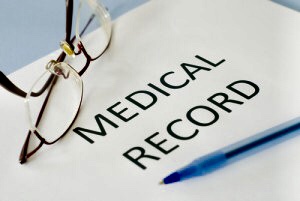
Many types of estate litigation cases such as testamentary capacity, undue influence, committee applications and others rely on medical evidence, which is typically initially obtained from medical records that are subsequently admitted into evidence at trial provided they meet the legal requirements set out below.
Re Gibb Estate 2021 BCSC 2461 quoted Re Singh Estate 2019 BCSC 272, which reviewed the law relating to the admissibility of medical records as an exception to the rule against hearsay pursuant to the standard business records exception.
The court summarize the applicable law:
[48] While clinical records are hearsay, they are admissible under the business records exception both at common law and under s. 42 of the Evidence Act. The requirements for the admission of medical records as business records are set out in Aresv Venner 1970 SCR 608
The Supreme Court of Canada held at 626:
Hospital records, including nurses’ notes, made contemporaneously by someone having a personal knowledge of the matters then being recorded and under a duty to make the entry or record should be received in evidence as prima facie proof of the facts stated therein.
[49] Justice Burnyeat in McTavish summarized the principles from Ares at 311-12:
1. The notes taken must be made contemporaneously.
2. The notes must be made by someone having a personal knowledge of the matters being recorded.
3. The notes must be made by someone who has a duty himself or herself to record the notes or to communicate the notes to someone else to record as part of the usual and ordinary course of their business.
4.The matters which are being recorded must be of the kind that would ordinarily be recorded in the usual and ordinary course of that business.
5. A statement in the records of the fact that a certain diagnosis was made will be admissible.
6. Recorded observations, diagnosis and opinions will be admissible providing they are recorded in accordance with points 1 through 4.
7. The fact that the referring doctor relied upon another doctor’s opinion to assist in coming to his or her own diagnosis and opinion is only evidence of that fact so that the other opinion does not become evidence unless it is otherwise admissible. Accordingly, it is only evidence of the fact that the referring doctor wished or required that opinion to be received before forming his or her own opinion.
8. Statements made by parties or by experts which are recorded in the usual and ordinary course of business but which lie outside the exception to the hearsay rule are hearsay and will not be admitted into evidence unless they can be brought within Section 14 of the Evidence Act which allows for the admissibility of such statements if it can be shown that they are proof of a prior inconsistent statement.
[50] The issue of third party statements was addressed in Cambie Surgeries. Justice Steeves provides:
…any statement by the patient or any third party that is not within the observation of the doctor or person who has a duty to record such observations in the ordinary course of business is not admissible for any purpose and will be ignored by the trier of fact…
…




